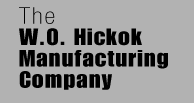Home » How accurate are CNC machines?
How accurate are CNC machines?
In the ever-evolving world of manufacturing, precision and accuracy are paramount to ensure the production of high-quality products.
One technological marvel that has revolutionized the manufacturing industry is Computer Numerical Control (CNC) machines.
These machines have become indispensable tools for producing intricate and complex parts with unparalleled precision.
But how accurate are CNC machines, and can they truly deliver the precision that is required in modern manufacturing processes?
Understanding CNC Machines
Before we analyze the accuracy of CNC machines, it is essential to understand how these machines work.
CNC machines are programmable devices that operate using numerical control systems to interpret computer-aided design (CAD) models and translate them into precise movements of cutting tools.
These machines are capable of performing a wide range of machining operations, including milling, turning, drilling, and grinding, with exceptional accuracy and repeatability.
Role of Accuracy in Manufacturing
Accuracy plays a crucial role in manufacturing, especially in industries such as aerospace, automotive, and medical, where precision is non-negotiable.
Even the slightest deviation from the intended dimensions can lead to product defects, performance issues, and costly rework.
This is where CNC machines shine, as they offer unmatched accuracy and consistency, ensuring that parts are machined to the exact specifications every time.
Factors Affecting CNC Machine Accuracy
While CNC machines are known for their precision, several factors can influence their accuracy.
These include machine geometry, thermal effects, cutting tool wear, programming errors, and environmental conditions.
It is essential to consider these factors and implement proper maintenance and calibration procedures to maximize the accuracy of CNC machines.
Machine Geometry
The geometry of a CNC machine, including the alignment of its axes, plays a significant role in determining its accuracy.
Any misalignment or wear in the machine components can lead to deviations in the machining process, resulting in inaccuracies in the final part.
Regular maintenance and calibration of the machine geometry are essential to ensure consistent accuracy over time.
Thermal Effects
Thermal effects, such as temperature fluctuations in the machine environment, can also affect the accuracy of CNC machines.
Heat generated during machining operations can cause expansion or contraction of machine components, leading to dimensional changes in the parts being machined.
It is crucial to monitor and control the temperature of the machine to minimize thermal effects and maintain accuracy.
Cutting Tool Wear
Another factor that can impact the accuracy of CNC machines is cutting tool wear.
As the cutting tool interacts with the workpiece, it gradually wears down, affecting the precision of the machining operation.
Regular inspection and replacement of cutting tools are necessary to ensure consistent accuracy and surface finish in machining processes.
Programming Errors
Programming errors in the CNC machine can also lead to inaccuracies in the machining process.
Incorrect tool paths, feed rates, or spindle speeds can result in deviations from the intended design, leading to scrap parts and rework.
Thorough testing and verification of CNC programs are essential to identify and rectify any programming errors before machining the actual part.
Environmental Conditions
The environmental conditions in which CNC machines operate can also impact their accuracy.
Factors such as humidity, dust, and vibration can affect the performance of the machine and lead to deviations in the machining process.
It is important to maintain a clean and controlled environment to minimize the impact of these factors on the accuracy of CNC machines.
Accuracy Testing and Verification
To ensure the accuracy of CNC machines, rigorous testing and verification procedures are essential.
This includes using precision measurement tools such as coordinate measuring machines (CMMs) and laser interferometers to check the dimensional accuracy of machined parts.
Regular calibration of the machine and tool offsets is also necessary to maintain accuracy throughout the machining process.
Conclusion
In conclusion, CNC machines are highly accurate and reliable tools for modern manufacturing processes.
By understanding the factors that can influence their accuracy and implementing proper maintenance and calibration procedures, manufacturers can consistently produce high-quality parts with precision and efficiency.
While CNC machines may not be perfect, they continue to push the boundaries of what is achievable in the world of manufacturing, making them indispensable assets for engineers and manufacturers alike.
